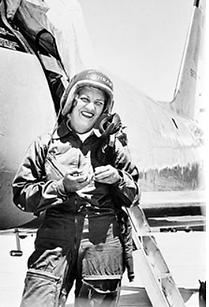Barb Warner Deane
Award-Winning Women's Fiction Author
& Public Speaker
Stories of Strong Women
and Small Towns
Feisty Women
As the saying goes, “well-behaved women rarely make history.”
Unfortunately, even many feisty women often don’t make history. There are thousands of stories of women, mostly unknown, who made a difference in history. I want to shed a light on some of these stories and will research and list here some of the more fascinating stories I find of women who should be more well-known for the contributions they have made to society.
If you know of any unsung women heroes, some feisty women whose stories should be told, please send them to me on the contact page.
Anyone know any fiesty women veterans in the Chicagoland area? Let them know about Operation HerStory -
Operation HerStory is teaming up with Honor Flight Chicago (HFC), Daughters of the American Revolution (DAR), Illinois Joining Forces (IJF) and the Illinois Department of Veterans’ Affairs (IDVA) to create the first all-women senior veterans flight from Illinois to Washington, D.C., in the October 7, 2020. This one-day trip will give the veterans the opportunity to visit the war memorials built in their honor, including the Women in Military Service For America Memorial and the Vietnam Women’s Memorial, while enjoying camaraderie and fellowship with other women veterans. https://operationherstory.org/
Here are the first few stories I’ve uncovered and thanks to everyone who sends me links and information:

Nancy Wake:
Rich married lady who dropped her comfortable life during WWII to drive an ambulance in France (she made her husband buy her an ambulance) and helped smuggle downed Allied servicemen and political prisoners to England by getting them across the Pyrenees (she walked it 17 times) and went back to fight the Germans in France. She actually killed some bad guys with her bare hands.
For more information on Nancy, check out this book: Nancy Wake, SOE's Greatest Heroine
Clare Hollingworth:
In early 1939, peace activist Clare Hollingworth arrived on the Polish-German border to aid Jews and other refugees fleeing from the Sudetenland, newly annexed by Nazi Germany. On a brief return to her native England, the 27-year-old Hollingworth — who once professed to “enjoy being in a war” — was hired as a part-time correspondent in Katowice, Poland, for the London Daily Telegraph.
After three days on the job that August, the cub reporter landed one of the biggest journalistic scoops of the 20th century: Hitler’s imminent invasion of Poland, marking the outbreak of World War II. (Courtesy of the Washington Post)


Jacqueline Cochran:
It only took one ride in an airplane to make aviation pioneer Jacqueline Cochran realize that she was destined to fly: she immediately started taking flying lessons and learned to fly solo in just three weeks. By the late 1930s she was nearly as well-known as Amelia Earhart, but it was during World War II that Cochran had her most dramatic influence on aviation. She campaigned tirelessly for women pilots to have the opportunity to support the war effort by flying non-combat missions, such as delivering new aircraft and conducting reconnaissance. Cochran eventually became the director and a key trainer of the Women Airforce Service Pilots (WASPs); the WASPs proved that women pilots were equally competent -- and daring -- as their male counterparts. Under her direction, the WASP pilots flew 60 million miles of operational flights and delivered over 12,000 aircraft of 78 different varieties over two years. For her war efforts, she received the Distinguished Service Medal and the Distinguished Flying Cross. After the war, Cochran continued to make aviation history -- including becoming the first woman pilot to break the sound barrier -- and was involved with the Mercury 13 program to determine if women could be acceptable astronaut candidates. Sadly, she never lived to see an American woman go to space, and she always wished it could have been different: "I'd have given my right eye to be an astronaut."
Marion Pritchard:
Marion Pritchard was just 19 when the Germans invaded and upended the city she loved. Young and passionate, she immediately threw herself into the resistance and ended up jailed for over half a year for her protest activities. After witnessing atrocities against Jews, particularly children, Pritchard often volunteered for “missions of disgrace,” where she would take in a Jewish baby or toddler and pretend to be the child’s unwed mother to hide the little one from the Nazi regime. Because Pritchard was a pretty, young single woman, her story was believable; because she had no Jewish ancestry, the children in her care were safe from too much scrutiny. By the time the war ended in 1945, it’s estimated that Pritchard helped to smuggle out more than 150 souls from Nazi-occupied Europe, many of them children.
